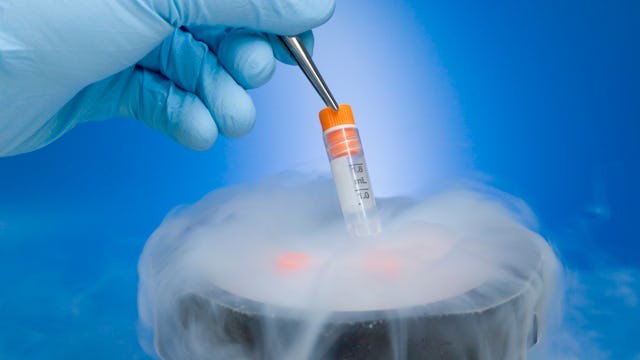Fertility Clinic Mishap Causes Thousands Of Damaged Eggs And Embryos

Nearly 700 patients and their families were notified of the malfunction
In devastating news to hundreds of patients, a major malfunction at an egg freezing facility in Cleveland may have lead to the loss of over 2,000 frozen eggs and embryos.
The University Hospitals Fertility Center in Cleveland notified approximately 700 fertility patients and their families that their frozen eggs and embryos were likely damaged due to rising temperatures in a storage tank.
Not only is the process of egg and embryo freezing costly, for many women and couples who choose to go that route — it’s can be their only hope of conceiving or carrying a child. Which makes this mishap beyond devastating to the families involved.
Once the extraction process is complete, the frozen eggs or embryos are stored in liquid nitrogen tanks. The cryogenic facilities that house the tanks are usually closely monitored with surveillance and alarms, as any change in temperature could cause irreparable damage. At the Cleveland fertility center, an equipment failure caused temperatures in the storage part of the facility to become too warm. This means several eggs and embryos — some which have been storied for a decade or longer — may no longer be viable for the patients affected.
While the exact cause of the malfunction won’t be known until an investigation is complete, Patti DePompei, president of UH MacDonald Women’s Hospital and UH Rainbow Babies & Children’s Hospital gave a statement to NBC News. “Obviously the situation that occurred here is devastating for the families involved, and it’s devastating for our physicians and our nurses and our staff as well.”
The cost of treatments like IVF aren’t fully covered by insurance, and the cost of freezing embryos and eggs alone can reach anywhere from $10,000-$14,000. For the patients and families who relied on this procedure and facility to keep their eggs and embryos safe, “devastated” doesn’t begin to cover it.
“Our hearts go out to the patients who have suffered this loss,” said Sean Tipton, chief policy officer atAmerican Society for Reproductive Medicine. “We will work with our member clinics to help them take any steps needed to ensure such an event never happens again.”